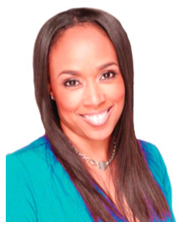
Habits of an Effective Coach: Habit 3- Put First Things First
Habit 3: Put First Things First
“The Principle of Priority states (a) you must know the difference between what is urgent and what is important, (b) you must do what’s important first” – Steven Pressfield, The War of Art: Break Through the Blocks & Win your Inner Creative Battles.
The business world is a world of priorities. With all the objectives, both short-term and long-term, that businessmen need to accomplish, they can easily lose track of what needs to be done first and what can be done later on. Aside from the hundreds of tasks that requires attention, there are tons of pit stops and detours that businessmen encounter throughout their careers. While factors like leadership skills, patience, intelligence and decision-making capabilities are necessary for success, the real success lies in personal management.
Covey’s Take on the Principles of Personal Management
Stephen R. Covey’s book, The 7 Habits of Highly Effective People, talks about the seven essential habits that people need to develop in order to be more efficient in their work. It is a guide for businessmen in order to be able to achieve their desired goals. Aside from that, it’s a perfect partner for individuals who need life coaching.
Covey’s take on personal management starts out by emphasizing its importance. Putting first things first is the fulfillment of being proactive and beginning with the end in mind. This is the time when we exercise the principles of personal management – moment by moment.
It then taps on the importance of discipline on personal management. Covey tells us that leadership is being able to identify which things should be put first while management is putting that priority into action. According to Covey, ”Management is discipline, carrying it out.”
The chapter then takes us on the nature of time management and the tools that we can use to live the principles that we can learn from the book. With personal management, we can learn how to say no to things that are not important, identify our key roles, select our goals, schedule and adapt daily.
Who Needs it and Why
Learning the habit of personal management is not important to businessmen alone. It is a key habit that must be adapted by business coaches as well.
According to John Denney, President of the Professional Business Coaches Alliance, business coaches work on two distinct areas with businessmen and executives. First, they help businessmen who don’t have an idea on what to do on a certain part of their business. Second, they help clients who knows what they must do but are not doing it or are doing other stuff.
From the above statements, we can clearly see that the main function of being a business coach revolves around helping business owners know what to do and do what they know. This is where the knowledge of personal management, as taught to us by Stephen Covey, comes in. Business coaches need to have that knowledge of identifying key points in business activities and working to realize them.
Like teachers, business coaches must know for themselves the importance of putting first things first and the means to apply it. With this important knowledge, they can guide their clients better and more effectively.
The “business” of business coaching is a field that requires experience, skills, and intelligence. But most of all, it requires the habit of being able to put first things first.
Create a powerful day!
Cherry A. Collier, Ph.D., MCC, CNLPMC, RCC, CPCC
Chief Collaboration Officer, Master Certified Executive Coach & Inclusion Strategist
Personality Matters Incorporated provides many services including coaching, leadership, and organizational development. It is Personality Matters, Inc.’s goal to help facilitate the necessary resources and tools to help individuals and organizations grow to achieve their goals.
919. 4. PEOPLE or 919.473.6753
Email: mypersonalitymatters@gmail.com
Blog: https://drcherrycoaching.com/myblog/
Web Personality Matters: www.pmatters.org
Web Dr. Cherry: https://drcherrycoaching.com/ –
Sources:
https://www.stephencovey.com/7habits/7habits.php
Covey, Stephen R. The 7 Habits of Highly Effective People, Free Press: 1989
Donney, J. (n.d.). What Do Business Coaches Do?. Professional Business Coaches Alliance. Retrieved April 1, 2014 fromhttp://www.businesscoachesalliance.com/business-coaches/what-do-business-coaches-do
Image: Shutterstock paid subscription all rights reserved

